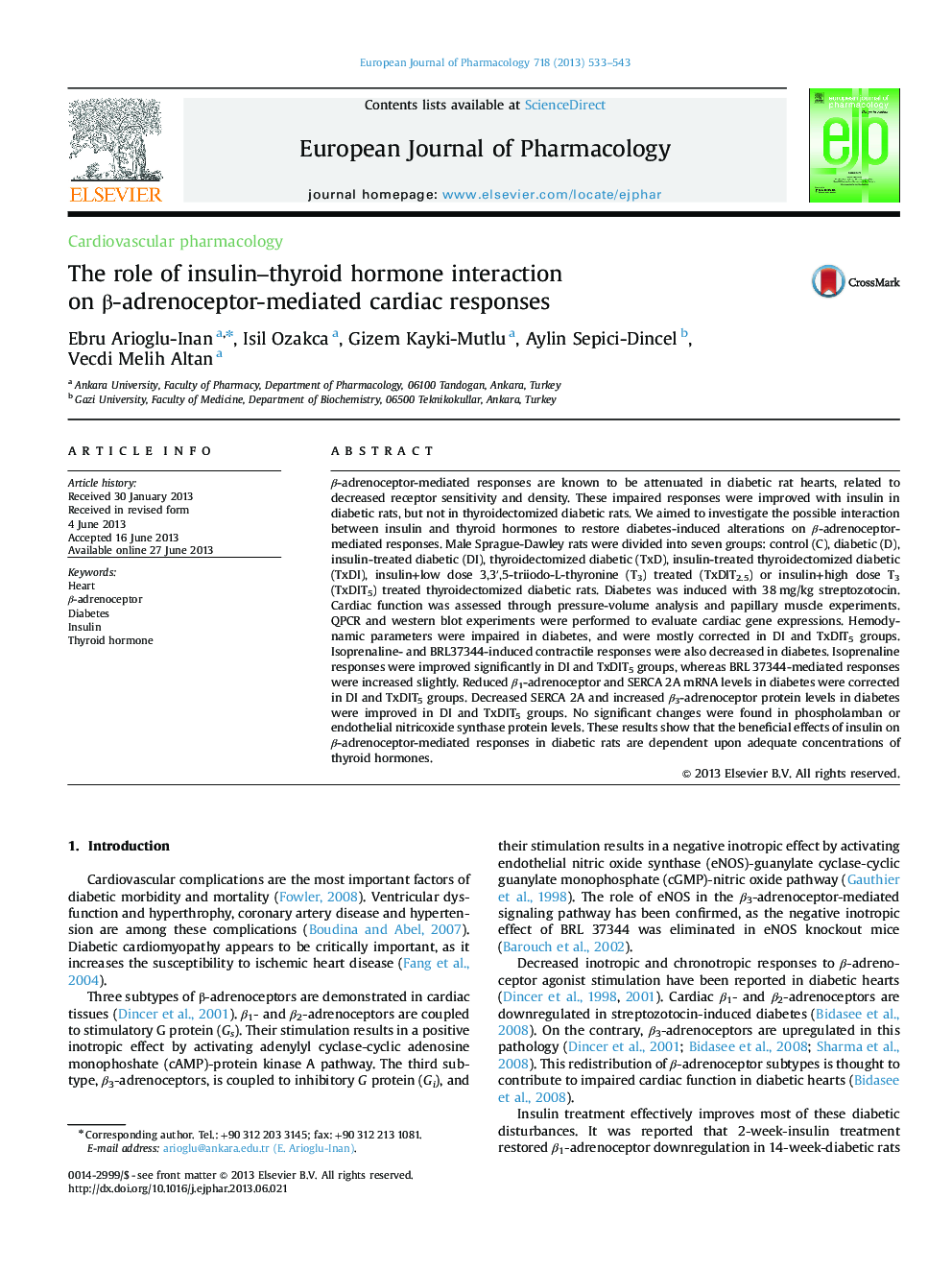| Article ID | Journal | Published Year | Pages | File Type |
|---|---|---|---|---|
| 5828437 | European Journal of Pharmacology | 2013 | 11 Pages |
β-adrenoceptor-mediated responses are known to be attenuated in diabetic rat hearts, related to decreased receptor sensitivity and density. These impaired responses were improved with insulin in diabetic rats, but not in thyroidectomized diabetic rats. We aimed to investigate the possible interaction between insulin and thyroid hormones to restore diabetes-induced alterations on β-adrenoceptor-mediated responses. Male Sprague-Dawley rats were divided into seven groups: control (C), diabetic (D), insulin-treated diabetic (DI), thyroidectomized diabetic (TxD), insulin-treated thyroidectomized diabetic (TxDI), insulin+low dose 3,3â²,5-triiodo-L-thyronine (T3) treated (TxDIT2.5) or insulin+high dose T3 (TxDIT5) treated thyroidectomized diabetic rats. Diabetes was induced with 38 mg/kg streptozotocin. Cardiac function was assessed through pressure-volume analysis and papillary muscle experiments. QPCR and western blot experiments were performed to evaluate cardiac gene expressions. Hemodynamic parameters were impaired in diabetes, and were mostly corrected in DI and TxDIT5 groups. Isoprenaline- and BRL37344-induced contractile responses were also decreased in diabetes. Isoprenaline responses were improved significantly in DI and TxDIT5 groups, whereas BRL 37344-mediated responses were increased slightly. Reduced β1-adrenoceptor and SERCA 2A mRNA levels in diabetes were corrected in DI and TxDIT5 groups. Decreased SERCA 2A and increased β3-adrenoceptor protein levels in diabetes were improved in DI and TxDIT5 groups. No significant changes were found in phospholamban or endothelial nitricoxide synthase protein levels. These results show that the beneficial effects of insulin on β-adrenoceptor-mediated responses in diabetic rats are dependent upon adequate concentrations of thyroid hormones.
